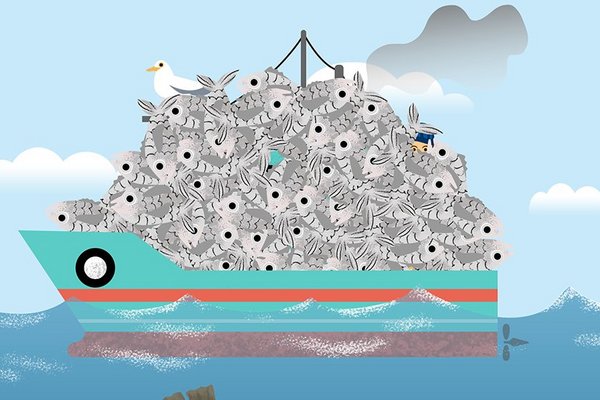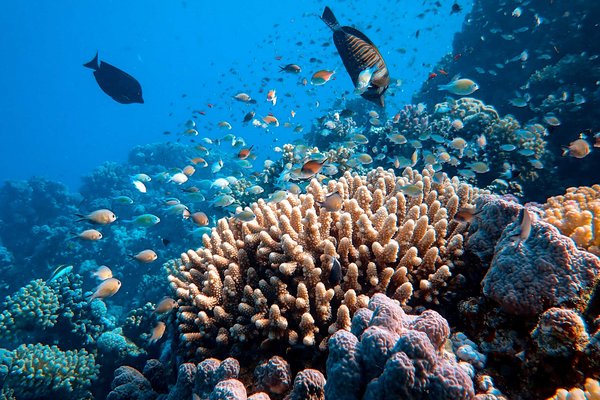Vote on the Landing Obligation Report

The European Parliament’s Committee on Fisheries just adopted a report on the implementation of the landing obligation. Under this policy, fishers are prohibited from discarding unwanted catches, all catches need to be landed. This will help protecting marine ecosystems by reducing unnecessary fishing mortality and unwanted catches.
Marine populations have been in decline due to stressors on the oceans, and overfishing has been one of the biggest issues over the last decades. The priority in fisheries management is to stop overexploitation of marine resources and to move towards fishing practices that would be more sustainable and more mindful of marine conservation.
One of the biggest changes in the European fisheries management has been the introduction of the landing obligation that was gradually phased in across fisheries and species from 2015 to 2019, when it fully entered into force. Essentially, the landing obligation means fishers are prohibited from discarding unwanted catches - under this policy, all catches need to be landed (apart from certain exemptions).
The landing obligation is a complex issue where opinions between stakeholders vary, and it is important to assess it in a nuanced way. The European Parliament’s Committee on Fisheries just adopted a report on the implementation of the landing obligation, which I worked on as the Greens/EFA shadow rapporteur.
One of my priorities in working on this report was to keep the big picture in perspective and to emphasize why the landing obligation was introduced: to protect marine ecosystems by reducing unnecessary fishing mortality and unwanted catches, especially juvenile fish. The landing obligation can be a useful tool to achieve that purpose, but it needs to be properly implemented.
Unfortunately, we do see that compliance with the landing obligation is insufficient, and it is important to acknowledge why this is the case. Firstly, the introduction of the landing obligation was a big adjustment for the fisheries industry. Encouraging a shift in behaviour and a culture of compliance takes time, and the landing obligation was only fully phased in two years ago, which is a short time to make any definitive conclusions on the effectiveness of a policy.
In addition, improving the implementation of the landing obligation also requires political will, and we have not always seen that happening. For example, exemptions to the landing obligation were granted to Member States despite the Scientific, Technical and Economic Committee for Fisheries (STECF) warning there was in some cases insufficient scientific evidence to grant those exemptions. This clearly undermines the objective of reducing unwanted catches. Exemptions have been requested to make application of the landing obligation easier, which should be considered, but any exemptions must be granted only as a last resort and only on the basis of sufficient scientific evidence.
One of my main goals while working as the shadow rapporteur on this file was to emphasize constructive solutions that can improve the implementation of the landing obligation and to contribute to the ultimate goal of protecting marine resources.
For example, Member States, supported by the European Commission, should be encouraged to cooperate more, exploring solutions like quota swaps and other quota redistribution schemes. Of course, any quota redistribution efforts should be supported by scientific advice. Mitigation measures to reduce unwanted catches should be encouraged, such as improving gear selectivity, and avoiding areas or seasons where unwanted catch might be present.
Another key component of improving compliance with the landing obligation is to improve monitoring and control mechanisms, especially for vessels identified as having a high-risk of non-compliance. The revision of the fisheries control regulation might bring in some improvements, although unfortunately the final report adopted in the plenary adopted provisions that will make it more difficult for authorities to plan inspections – to the detriment of marine biological resources.
While implementation of the landing obligation is not ideal by any means, it is important to acknowledge this will take time. But with political will, there are tools we can use to improve the existing situation. The implementation report that the Committee on Fisheries just adopted calls on the European Commission to assess the extent to which the reduction of discards under the landing obligation has been achieved. The report also calls on the European Commission and Member States to make use of a range of tools to improve selectivity and reduce unwanted catches, from scientific studies on gear selectivity to better use of digital technologies. We have to prioritize protection of marine ecosystems and to find ways to overcome existing challenges in implementation without undermining that ultimate objective.







![[Translate to English:] Zeichnung von einem Mann und einer Frau mit der Überschrift Bety y Jyri.](/fileadmin/_processed_/5/1/csm_230614_BetyJyri-Website_96cba086d2.jpg)